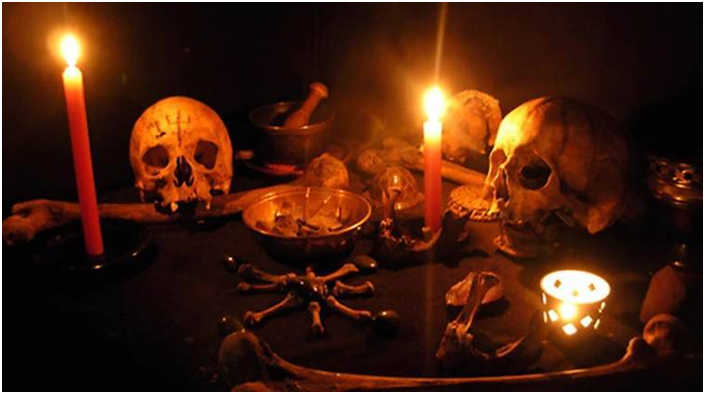Is Jerusalem recognised as the capital of Israel? (GS Paper 2, International Relation)

Why in news?
- Recently, Australia revoked itsrecognition of West Jerusalem as the capital of Israel.
- Former Prime Minister Scott Morrison had formally recognised West Jerusalem as Israel’s capital in December 2018 following a similar move by then-U.S. President, although Australia’s embassy remained in Tel Aviv.
- Israel considers “complete and united” Jerusalem as its capital. Palestinian officials are of the view that East Jerusalem should be the capital of the future State of Palestine.
What prompted the move?
- Australia said that it remains committed to a two-State solution in which “Israel and a future Palestinian state coexist, in peace and security, within internationally recognised borders”. Australia’s Foreign Ministry said that it will not support an approach that undermines this prospect.
- The Ministry also guaranteed its support to both Israel and Palestine. It was among the first countries to formally recognise Israel under Labour Prime Minister Ben Chifley. This government will not waver in its support of Israel and the Jewish community in Australia.
- The move was criticised by Israeli Prime Minister.
- Palestine welcomed the move by Australia as an “affirmation” that Jerusalem’s status depends on the final status of talks.
What is the two-State solution?
- The internationally-accepted resolution of the Israel-Palestine conflict is called the two-State solution.
- If achieved, the two-State solution will provide for the coexistence of the State of Israel alongside the independent State of Palestine.
How is Indonesia involved?
- Indonesia is the world’s most populous Muslim nation and Australia’s immediate neighbour. Australia’s earlier announcement of the possible recognition of West Jerusalem as Israel’s capital in October 2018 angered Indonesia.
- Due to the ensuing tension, Australia warned its citizens to “exercise a high degree of caution” while travelling to Indonesia due to protests in the capital Jakarta and popular holiday hotspots, including Bali.
- The move to revoke the recognition of West Jerusalem as the capital of Israel has been welcomed by Indonesia.
Do other countries recognise West Jerusalem as the capital of Israel?
- Most countries still have their embassies in Tel Aviv and not Jerusalem. Before 1980, many embassies were located in Jerusalem.
- However, U.N. Security Council Resolution 478 urged countries to move their diplomatic missions out of Jerusalem, and 10 countries – Bolivia, Colombia, Costa Rica, Dominican Republic, El Salvador, Guatemala, Haiti, the Netherlands, Panama, and Uruguay – complied. Chile, Ecuador, and Venezuela had already withdrawn their missions prior to the adoption of the resolution.
- Costa Rica and El Salvador were the last countries to move their embassies out of Jerusalem in 2006.
United States:
- In December 2017, U.S. President announced the recognition of West Jerusalem as the capital of Israel and said that the embassy would be moved there. The U.S. embassy in Jerusalem opened in May 2018.
- The move, however, was not brand new for the U.S. In 1995, the U.S. Congress passed the Jerusalem Embassy Act to move its embassy from Tel Aviv to Jerusalem.
- The Act was legally binding; however, a clause allowed Presidents to postpone its application for six months for “national security interests”. Bill Clinton, George W. Bush and Barack Obama re-ratified the clause every six months during their tenure as U.S. Presidents.
Other nations:
- Guatemala followed suit and opened an embassy in Israel two days after the U.S. Paraguay also said that it would move its embassy to Jerusalem but the decision was reversed in just three months when a new government was elected.
- In June 2021, Honduras inaugurated its embassy in Jerusalem. However, a year later, the country’s foreign ministry said that it was considering moving the embassy back to Tel Aviv.
- Kosovo opened an embassy in Jerusalem in March 2021., while Suriname announced in May 2022 that it plans to open an embassy in the city, although a definite date was not set.
- In September 2022, there was news of then-U.K. Prime Minister Liz Truss considering moving the country’s embassy from Tel Aviv to Jerusalem and had discussed the same with Israeli Prime Minister in a meeting on the sidelines of the U.N. General Assembly in New York.
Laws against black magic and superstition in India
(GS Paper 2, Polity and Governance)
Context:
- The brutal murders of two women as part of “ritualistic human sacrifices” in Pathanamthitta district of Kerala have left the country in shock.
- According to preliminary probe, the victims were subjected to extreme torture and sexually harassed, their body parts cut into several pieces before they were buried in a pit.
- Such chilling details of the killings that have emerged in the past few days have sparked a debate about the prevalence of superstitious beliefs, black magic, sorcery and other evil practices in a progressive State like Kerala.

NCRB data on deaths due to witchcraft and human sacrifices:
- The National Crime Records Bureau (NCRB), which maintains data on crimes in the country, provides data for deaths due to witchcraft and human sacrifices.
- As per the 2021 report, six deaths were linked to human sacrifices, while witchcraft was the motive for 68 killings. The maximum number of witchcraft cases were reported from Chhattisgarh (20), followed by Madhya Pradesh (18) and Telangana (11).
- Kerala saw two cases of human sacrifice. In 2020, India saw 88 deaths due to witchcraft and 11 died as part of ‘human sacrifices’.
What are the laws in India?
- In India, there is no central law that exclusively deals with crimes related to witchcraft, superstition, or occult-inspired activities.
- In 2016, MP RaghavLakhanpal introduced the Prevention of Witch-Hunting Bill in the Lok Sabha, but it wasn’t passed. The draft provisions included punishment for accusing or identifying a woman as a witch, use of criminal force against a woman, or torture or humiliation on the pretext of performing witchcraft.
- The Indian Penal Code (IPC) also prescribes punishment for related crimes like abduction and murder, but not for harming others via furthering superstitious and outdated beliefs. In the absence of a nationwide legislation, a few States have enacted laws to counter witchcraft and protect women from deadly ‘witch-hunting’.
Bihar (1999):
- Bihar was the first State to enact a law to prevent witchcraft, identification of a woman as a witch and“eliminate torture, humiliation and killing of women.”
- The Prevention of Witch (Daain) Practices Act came into force in October 1999.
- The Act describes a witch as a “woman who has been identified as a witch by someone else, having the power or intention of harming any person through the art of black magic, evil eyes, or “mantras” and it is deemed that she will cause harm to other people or the community in any manner.
- Anyone who identifies a person as a “witch” and acts to aid this identification can face a jail term of up to three months, or a fine of Rs 1,000, or both. In case of physical or mental torture, the jail term could be extended to six months, and the fine to Rs. 2,000. All offences under the Act are cognisable and non-bailable.
Jharkhand (2001):
- Jharkhand enacted a similar law in 2001, the Prevention of Witch (Daain) Practices Act. The law, however, hasn’t been effective. A document on the Jharkhand Police website claims that the passage of the Act “has not adequately prevented the identification and murder of women labelled as witches.”
- In 2021, Justice Sujit Narayan Prasad, the then Chief Justice of Jharkhand High Court,took suo moto cognizance of an incident where five of family in Gumla were killed after a village council sentenced them to death on the charge of being “witches”.
- It is very unfortunate that the Prevention of Witch (Daain) Practices Act, 1999 has been in operation since the year 1999 and the same has been adopted by the State of Jharkhand but concrete steps have not been taken to achieve the object and intent of the Act, 1999, the Chief Justice said in the March 2021 order.
Chhattisgarh (2005):
- Chhattisgarh is one of the worst-affected States in terms of witchcraft-related crimes and targeted violence against women. A witch is called a “tonahi” in the State. In 2005 the State enacted the Chhattisgarh TonahiPratadnaNivaran Act 2005 along the lines of Bihar and Jharkhand.
- As per the law, a person convicted for identifying someone as a witch can be sentenced to up to three years of rigorous imprisonment with a fine. The jail term can extend up to five years if the victim is mentally or physically harassed.
- The law adds that when a fine is imposed, the court shall take into consideration the physical and mental damage caused to the victim including the cost of treatment.
Odisha (2013):
- Following the directions of the Odisha High Court to frame a law to deal with rising cases of witch-hunting in the State, the Odisha Prevention of Witch-Hunting Bill was passed by the Assembly in 2013.
- The law includes provisions of imprisonment up to seven years and a penalty for offenders. The bill also provides for apenalty for a witch doctor, or a person claiming to be a black magician.
- Earlier in 2022, the Odisha State Commission for Women (SCW) sought stringent provisions in the existing Act after finding them inadequate. The panel demanded both jail and pecuniary punishment for persons found involved in sorcery-related crimes.
Maharashtra (2013):
- The Maharashtra Prevention and Eradication of Human Sacrifice and other Inhuman, Evil and Aghori Practices and Black Magic Act, 2013 was passed after the murder of anti-superstition activist Dr. Narendra Dabholkar the same year. Dr. Dabholkar headed the anti-superstition outfit Maharashtra AndhashraddhaNirmoolanSamiti (MANS).
- It enlists provisions for the prevention and eradication of human sacrifice and other inhuman practices. Punishment under the act is imprisonment of not less than six months and up to seven years, with a fine of not less than Rs 5,000 and up to Rs 50,000.
Rajasthan (2015):
- The State enacted the Rajasthan Prevention of Witch-Hunting Act, 2015 to “provide for effective measures to tackle the menace of witch-hunting and prevent the practice of witchcraft.” The law prohibits witch-hunting and practising witchcraft.
- The punishment for crimes mentioned in the Act goes up to a jail term of not less than one year and up to seven years with a fine of not less than Rs. 50,000.
- A person claiming to have supernatural or magical powers to control or cure a witch can be punished with rigorous imprisonment from one to three years, with a fine not less than Rs 10,000. A person who performs a ritual to free a woman from an evil spirit can face up to three years in prison.
- All those found involved in the unnatural death of a woman due to witch-hunting can be sent to jail for seven years, extendable to imprisonment for life. They may also be fined up to Rs 1 lakh.
Assam (2015):
- The Assam Witch Hunting (Prohibition, Prevention and Protection) Act, 2015, which received the President’s assent in 2018, provides for the complete prohibition of witch hunting.
- Punishment under the law can go up to seven years with a fine which may extend to Rs 5 lakh. The Act also stipulates punishment for involving the community and lists the measures the police can take to protect people from witch-hunting.
Karnataka (2020):
- The Karnataka Prevention and Eradication of Inhuman Evil Practices and Black Magic Act, 2017 came into effect in January 2020.
- The law bans several practices related to black magic and superstition, like forcing a person to walk on fire at religious festivals and the practice of piercing rods from one side of the jaw to the other.
- The law states that a court can direct the police to issue the name of a person convicted under the Act in local newspapers. “Inhuman, evil practices and black magic and advertisement, practice, propagation or promotion of such activities in violation of the Act” is punishable with up to seven years of imprisonment and with a fine ranging from Rs 5,000 to Rs 50,000.
What about Kerala?
- The Elanthoor human sacrifice case is not the first such case in the State. While data confirm that multiple cases are reported every year, police records show that majority of incidents took place in the countryside.
- Most recently, a woman in Palakkad slit the throat of her six-year-old child with a kitchen knife as a ‘sacrifice’ to appease the Gods.
Draft laws:
- The first attempt to frame an anti-superstition law came around a decade ago when back-to-back killings rocked the State. The then Additional Director General of Police (Intelligence), A. Hemachandran, prepared a working draft of the Kerala Exploitation by Superstition (Prevention) Bill in 2014, which covered elements involved in invoking supernatural powers for “wrongful gratification” including those of a monetary or sexual nature.
- The Kerala SasthraSahithyaParishad (KSSP) also submitted a draft ‘Superstitions and Evil Practices (Prevention and Eradication) Bill’ in the same year.
- The following year, MLA K. Sivadasan Nair moved a calling attention motion against evil and inhuman practices involving children. Replying to him, the Kerala government informed the Assembly that a draft on the lines of the anti-superstition law in Maharashtra was being prepared.
- Veteran Congress leader and former MLA P. T. Thomas also moved a private bill against black magic in 2018. All draft legislations, however, failed to see the light of day.
2019 Draft law:
- In 2019, the Kerala Law Reforms Commission, headed by former Supreme Court judge K. T. Thomas, submitted a fresh draft for an anti-black magic law to the State government.
- The Kerala Prevention of Eradication of Inhuman Evil Practices, Sorcery and Black Magic Bill, 2019 proposed strict punishment for any kind of evil practice in the name of black magic — a fine of up to Rs 50,000 and imprisonment of up to seven years, besides the punishments for offences under the Indian Penal Code. The Bill proposed spreading awareness about evil practices and publishing names and details of convicts in newspapers.
- Like the 2014 Bill, the 2019 legislation also excluded harmless rituals performed at home and religious places, festivals, prayers and processions and worship at any religious or spiritual place from its purview. But like its predecessors, the Bill was also in cold storage until October 2022.
What’s next?
- In the aftermath of the Elanthoor killings, the Kerala government is likely to consider the Kerala Prevention and Eradication of Inhuman Evil Practices, Sorcery and Black Magic Bill, 2019.
- The government may either opt for an ordinance or a legislation on the floor of the Assembly to take the Bill forward.
- The finalisation of the Schedule of the Bill could, however, pose a serious challenge to the government, as the inclusion or exclusion of practices originating in could upset powerful socio-religious groups and civil society organisations in the State. At present, the draft Bill includes 10 practices deemed necessary to be curbed by the Law Commission.
3-dose hepatitis B vaccine fully protects HIV positive adults: Study
(GS Paper 3, Science and Tech)
Why in news?
- Three doses of HEPLISAV-B vaccine provide full protection to adults with HIV, who were never immunised against hepatitis B virus (HBV) either through vaccination or infection, according to a study.

Research on HEPLISAV-B
- The researchers from University of Cincinnati and Cornell University tested the three-dose course of HEPLISAV-B among 68 adults living with HIV at 38 sites in the US, South Africa, and Thailand.
- None of the participants had either received a previous HBV vaccination or had evidence of a previous HBV infection. Retroviruses are a group of viruses that contain two single-strand linear RNA molecules per virion, or a viral particle, and reverse transcriptase (RNA to DNA).
- Following the initial dose of HEPLISAV-B vaccine 0.5 milliliter (mL) as an intramuscular injection, the study participants received additional doses at four weeks and 24 weeks.
- The objective of this part of the study was to assess anti-HBV surface antibodies (HBsAbs) greater than or equal to 10 milli-international units per milliliter (mIU/mL) at week 28, defined as seroprotection, or protection in the blood serum, from HBV, and to assess the vaccine's safety.
Outcome:
- All participants achieved seroprotection with 88 per cent of them achieving HbsAb levels greater than 1000 mIU/mL. High antibody levels are associated with long-term vaccine durability.
- At eight weeks after the second dose, 94.4 per cent of participants achieved seroprotection, which increased to 98.5 per cent by week 24 prior to the third dose, according to the researchers.
- The most common side effects related to vaccination were injection site pain, malaise, fatigue, muscle aches and headaches.
Hepatitis B virus (HBV):
- HBV is spread primarily through sexual contact and sharing of contaminated needles. It causes chronic hepatitis B infection and can lead to progressive liver disease.
- People living with HIV, including those who are taking antiretroviral therapy, are at a greater risk of liver-related illness and death when co-infected with HBV.
- According to the Centers for Disease Control and Prevention, 10 per cent of U.S. adults with HIV also have hepatitis B. People living with HIV are less likely to produce a protective immunological response to HBV vaccination.
HEPLISAV-B vaccine:
- The HEPLISAV-B vaccine, made by the California-based Dynavax Technologies, was approved in 2017 by the U.S. Food and Drug Administration as a two-dose vaccine regimen for adults. However, little was known about its protective effects in people living with HIV.




